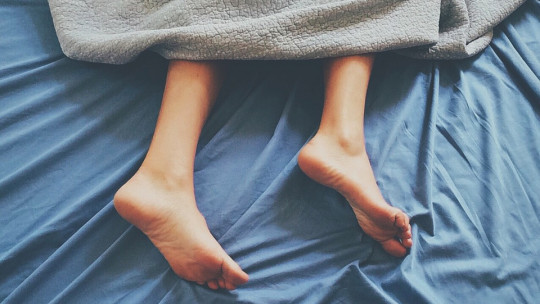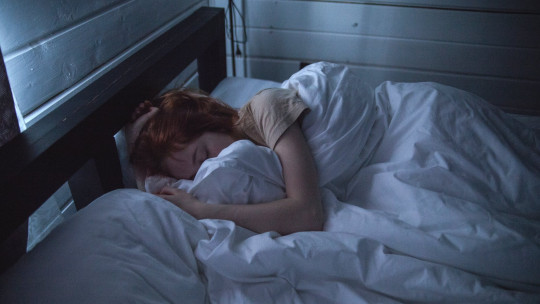
Insomnia problems are a common source of discomfort for many people around the world who experience them in their daily lives, but fortunately, no one is condemned to having to resign themselves and suffer them without being able to do anything.
And even though we cannot consciously carry out actions at bedtime, before and after we can apply psychologically healthy routines and habits to our daily lives that help us rest well. So, in this article you will find several tips and tricks to manage and overcome insomnia.
Tips to manage insomnia and sleep well
Insomnia is one of the sleep disorders that has been most researched in the field of medicine and psychology, and health professionals have progressively found various solutions to solve this type of problem. Some of them can only be done under medical or psychotherapeutic supervision, but others, less effective but simpler, can be applied by oneself.
Below we will briefly develop the main general tips that you can use to successfully manage insomnia.
1. Relaxation techniques
Relaxation techniques are tools that we can use daily to relax before going to sleep, especially if we have difficulty falling asleep or have insomnia problems.
There are many techniques of this type that we have and currently we have the possibility of learning them both electronically over the Internet or by going to any specialist in the field.

Some of the relaxation techniques that we can put into practice in our daily lives are controlled breathing exercises, massages, aromatherapy, music therapy, or controlled breathing.
One of the most recommended techniques of this type is Jacobson’s progressive muscle relaxation technique, a methodology frequently used in both the field of psychology and medicine. It is a relaxation program whose benefits have been scientifically proven and which consists of progressive relaxation and awareness of various muscle groups for a period of approximately 10 minutes.
2. Maintain a consistent sleep schedule
Keeping a clear sleep schedule and following it weekly, respecting daily the time we go to bed and the time we get up the next day is another very useful tip to beat insomnia.
Maintain a disciplined daily sleep schedule It accustoms our body to always activate and deactivate at the same time something essential for the correct functioning of circadian rhythms (the natural rhythms followed by the brain’s “biological clock”).
3. Do physical exercise
Doing physical exercise regularly throughout the week also contributes to leading a healthier life and is another of the classic ways with which we can overcome our insomnia problems.
This physical exercise routine must be organized according to our needs and physical abilities, avoiding any risk of injury or excessive performance for our body.
Besides that, It is advisable to exercise during the early afternoon hours leaving at least five hours of margin to rest before going to bed (that is, not doing it just before going to sleep, so as not to alter the body’s natural biorhythms).
Finally, it should be noted that by doing exercise of any kind that is intense and makes us tired, we will be able to release endorphins in our body, chemical substances that help us be in a better mood and fall asleep better at night.
4. Healthy eating
Food can also be an element to take into account to overcome cases of insomnia and especially the type of food and the way we consume it at night. On the one hand, digestion problems will make it difficult to fall asleep, and on the other, Being malnourished will expose us more to stress and this does not go well with sleep.
Nutrition experts advise that the last meal of the day be eaten between 7 and 8 p.m. to have time to digest before going to sleep. At the same time, it is also advisable to have a small dinner and consume foods that are not very heavy.
Likewise, there are also certain healthy habits that we can practice daily before going to sleep, such as taking a valerian or similar infusion.
5. Avoid nighttime exposure to any screen
It is advisable to avoid exposure to screens of all types shortly before going to sleep, regardless of the mobile device, since could interfere with the brain’s natural falling asleep. Exposing ourselves to so much light can confuse our internal biological clock, causing the nervous system to maintain a high level of activation by functioning almost as if it were broad daylight.
Although it is very difficult for us, due to the great dependence that most people have on cell phones and other electronic devices, before going to sleep it is advisable to do other relaxing activities such as reading or listening to music.
6. Read
Reading can also be one of the habits that, if we continue progressively and over a long period of time, can serve as an element of sleep activation. allow us to disconnect.
Reading is one of the most relaxing activities most suitable for just before going to bed, especially if it is not very complicated texts or that pose a challenge to understanding or memorization (university notes are ruled out, for example) . That is why it is highly recommended to do a few minutes before going to sleep, a habit that can be combined with the intake of any type of relaxing infusion.
7. Meditate
Like classic relaxation techniques, meditation is a mental control modality based on ancient Eastern traditions that can be a good ally to prepare our body in the minutes before bedtime.
There are many ways to meditate to relax our body; One of the most recent modalities used throughout the world is Mindfulness a relaxation methodology used in clinical practice and inspired by certain Buddhist traditions, but developed in a scientific research setting.
Mindfulness or Full Attention allows us to become aware of both our body and our mental content and allows us to focus on the present moment, forgetting about past or future worries.
8. Create an environment suitable for sleep
Creating an environment suitable for sleep consists of a series of guidelines that can help us fall asleep and with which we can facilitate the brain and the body to progressively enter the phase of falling asleep.
Some of these guidelines may be, as indicated, avoiding exposure to bright screens, turning off any lights in the house that are excessively strong or taking a relaxing bath just before going to sleep.








